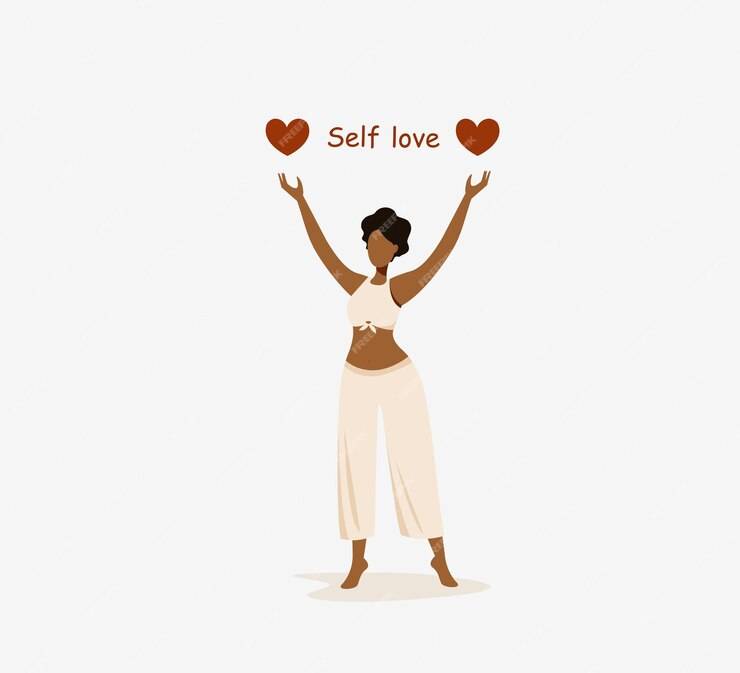When we talk about finding "true love," we often envision a perfect partnership where two people bring out the best in each other, create beautiful memories together, and grow through life’s challenges side by side. While this vision is wonderful, there’s a critical piece that many people overlook in the pursuit of this kind of love: self-love.
Self-love is often described as one of the most important foundations for building a healthy, lasting relationship. It's not about narcissism or selfishness; rather, it's about having a deep respect and appreciation for who you are. Self-love allows you to be whole and fulfilled as an individual before entering a relationship with someone else. Without this internal foundation, it can be difficult to connect with someone else in a truly meaningful way.
Here’s why self-love is essential when it comes to finding—and keeping—true love.
1. Self-Love Helps You Set Healthy Boundaries
One of the most important aspects of self-love is the ability to set healthy boundaries. Without self-love, it becomes easy to tolerate unhealthy behaviors or situations just to avoid conflict or gain approval from others. If you don’t know how to set boundaries, you might find yourself in relationships where your needs are not being met, or worse, where you're being taken advantage of or mistreated.
When you practice self-love, you recognize your own worth and understand that your emotional, physical, and mental health deserve respect. You start setting clear boundaries that protect your well-being. By doing so, you create a relationship dynamic where both partners respect each other’s space, needs, and individuality, making it more likely that the connection will be loving, healthy, and sustainable.
Without this kind of self-respect, it becomes difficult to attract someone who will treat you in the same way. You teach others how to treat you by how you treat yourself, and when you value your needs, you attract people who will do the same.
Why It’s Important: Healthy boundaries ensure that both partners are able to be their authentic selves without compromising their individual needs. This leads to a relationship where both parties feel loved, respected, and valued.
2. Self-Love Reduces the Need for Validation from Others
Many people enter relationships seeking validation from their partner—hoping that the other person will make them feel whole or lovable. This mindset can lead to unhealthy dependency or codependency, where one person is constantly seeking approval, and the other feels overwhelmed by the pressure to provide it.
When you love yourself, you no longer rely on external validation to feel worthy. You already know that you are enough. This shift changes the entire dynamic of your relationships. Instead of relying on someone else to make you feel good about yourself, you enter the relationship from a place of self-assurance. You don’t need your partner to complete you; instead, you come to the relationship as a whole person, ready to give and receive love freely.
By loving yourself first, you also learn to recognize when love is genuine and when it is being given conditionally. You won’t settle for someone who doesn’t appreciate or value you in the way you deserve.
Why It’s Important: When you’re not seeking validation from your partner, you allow space for a healthier, more balanced relationship. You’re able to love without attachment or desperation, and your partner is free to do the same.
3. Self-Love Encourages Emotional Independence
In any healthy relationship, both individuals must be emotionally independent. Emotional dependence can lead to unhealthy attachment, jealousy, or resentment, where one person feels as though they need the other to be happy or fulfilled. This can create an unbalanced dynamic, where one person feels overwhelmed by the weight of the other’s emotional needs.
Self-love teaches you to be emotionally independent. It encourages you to take responsibility for your own happiness, joy, and emotional well-being. When you love yourself, you no longer put the pressure on your partner to "make you happy." You learn to find contentment and peace within yourself, regardless of what’s happening around you.
This emotional independence allows for healthier relationships, where both partners can support each other without becoming emotionally drained. You don’t need to be “saved†by someone else, because you’ve already learned how to nurture your own emotional health. And in turn, you can offer your partner the same freedom.
Why It’s Important: Emotional independence allows you to maintain your individuality in a relationship. You aren’t relying on your partner to fulfill your emotional needs, which leads to a balanced and more fulfilling partnership.
4. Self-Love Promotes Self-Awareness
Self-love encourages deep self-awareness. It requires you to be honest with yourself about your desires, values, boundaries, and needs. When you know and love yourself, you are better able to understand what you want from a relationship and what you need in a partner.
People who practice self-love are not afraid to be vulnerable about their needs and desires. They aren’t afraid to speak up or walk away from situations that don’t align with their values. This level of self-awareness helps you avoid toxic relationships or ones that are not a good match for you.
Additionally, when you love yourself, you’re more likely to be attracted to a partner who aligns with your values and goals, rather than settling for someone simply out of loneliness or fear of being alone. Self-awareness ensures that you are not only attracted to someone’s external traits but also to their character and how they treat you.
Why It’s Important: Self-awareness helps you understand what you truly need in a relationship. It allows you to make better choices and fosters a stronger connection with someone who truly complements your life and values.
5. Self-Love Helps You Heal from Past Hurts
Many people carry emotional wounds from past relationships—whether from heartbreak, betrayal, or unfulfilled needs. These past experiences can cloud our judgment and prevent us from fully opening up to new love. Without practicing self-love, we may continue to repeat unhealthy relationship patterns or allow old wounds to dictate how we interact with potential partners.
Self-love helps you heal from past hurts by teaching you to nurture and care for yourself in the aftermath of pain. When you learn to love yourself, you understand that your past does not define you. You give yourself the space and time to heal, and you no longer bring old baggage into new relationships. This healing process is essential for moving forward and finding true love, as it frees you from lingering emotional scars and allows you to approach new relationships with a fresh perspective.
Why It’s Important: Healing from past emotional wounds is crucial for emotional growth. When you love yourself, you allow yourself to move past the pain and open your heart to the possibility of new, healthy love.
6. Self-Love Increases Your Capacity to Love Others
The paradox of love is that we can only give what we have. If you don’t love yourself, it’s difficult to truly love someone else. When you practice self-love, you increase your capacity to give love in its purest form. You stop giving love out of desperation or neediness and start offering love from a place of abundance. This means you’re able to give without expectations or conditions, which is the foundation of any lasting, genuine relationship.
Self-love also teaches you how to love unconditionally, accepting yourself with all your imperfections. This makes it easier for you to offer the same kind of unconditional love to your partner, understanding that they, too, have their flaws and vulnerabilities.
Why It’s Important: The more you love yourself, the more love you have to give. True love flourishes when both partners are capable of giving and receiving love in a healthy, selfless way.
7. Self-Love Helps You Attract the Right Partner
Finally, when you practice self-love, you begin to attract the right kind of love into your life. People are drawn to others who are confident, emotionally healthy, and secure in themselves. When you radiate self-love, you send out an energy that attracts people who are aligned with your values, needs, and desires. You stop attracting partners who are emotionally unavailable or unkind because you now know your worth and will not settle for less.
Moreover, when you love yourself, you recognize that you deserve a relationship based on mutual respect, trust, and support. You won’t tolerate toxic or dysfunctional behavior, which makes it easier to spot red flags early on and walk away from situations that aren’t serving you.
Why It’s Important: Loving yourself raises your standards and expectations for your relationships. You attract partners who appreciate and respect you, and you are less likely to settle for unhealthy or unfulfilling relationships.
Conclusion
Self-love is the foundation of true love. Without it, it’s difficult to have the kind of relationship you desire because you may unknowingly accept less than you deserve, fail to communicate your needs, or rely too heavily on someone else for emotional validation. But when you learn to love yourself, you create a space for true love to blossom.
Loving yourself means accepting your flaws, embracing your strengths, and nurturing your emotional well-being. It allows you to set healthy boundaries, attract the right partner, and build a loving, fulfilling relationship. Remember, true love starts with you. When you love yourself first, you open the door to a love that is deeper, healthier, and more lasting.




No comments yet
Be the first to share your thoughts!